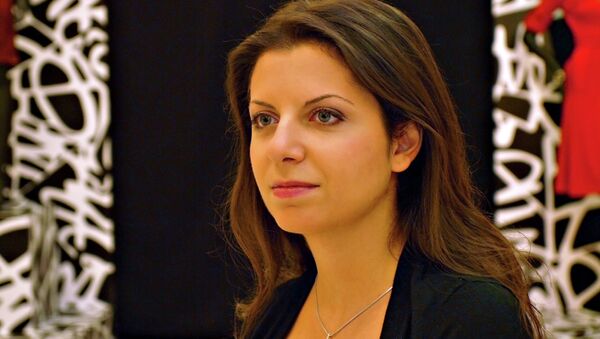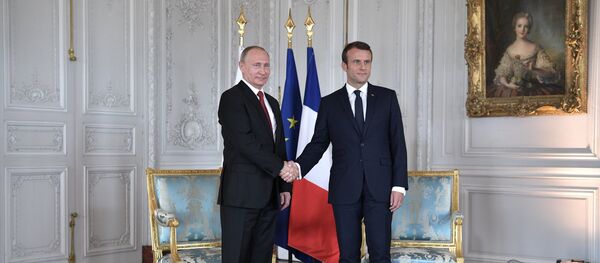During the meeting, which lasted an hour longer than scheduled, the two held an "open, honest" discussion, where they spoke economic cooperation, cooperation in the battle against terrorism and other aspects of bilateral relations.
During the press conference, a journalist from RT France asked Macron why RT and Sputnik had been denied access to his headquarters during the election campaign.
Macron replied by accusing Sputnik and RT of publishing "mistruths" about his election campaign.
"I have always had an exemplary relationship with foreign journalists, but they have to be journalists … Russia Today and Sputnik were organs of influence and propaganda that spread counterfeit truths about me," the French President replied.
Margarita Simonyan, editor-in-chief of RT and Sputnik, responded to Macron's accusation by pointing out that his campaign has not been able to come up with an example of the alleged anti-Macron propaganda.
"Despite the numerous accusations made throughout the duration of the French presidential campaign, to this day not a single example, not a single piece of evidence, has been presented to support the claims that RT spread any slander or 'fake news' about Mr. Macron," Simonyan said, RT reported.
"By labeling any news reporting he disagrees with 'fake news,' President Macron sets a dangerous precedent that threatens both freedom of speech and journalism at large."
Speaking to Russia's 60 Minutes news program, Simonyan added that according to Macron's logic, "All Western media should be kicked out of Russia, because the Western media is always against Putin and are always agitating for the Russia opposition, thereby trying to interfere in our elections."
Last month, ahead of the French election on May 7, Macron's campaign team refused to give journalists from RT and Sputnik accreditation to visit his campaign headquarters.
Sputnik issued a statement in which it refuted the accusations.
"The allusion to Sputnik and RT by the Macron campaign in the context of this investigation is absolutely groundless. It is a perfect example of a fabrication aimed at undermining trust among our readers. When Mr. Macron’s movement released the statement alleging Sputnik’s involvement in ‘actively spreading’ the information, Sputnik had published only two articles, both based on EM! public statements," Sputnik said in a statement.
Sputnik has published two stories on the offshore allegations. The first covered Macron's rebuttal of the allegations, while the second reported on the complaint filed by his party.
On Monday, Kremlin spokesman Dmitry Peskov told RIA Novosti that the Kremlin disagrees with Macron's assessment of the Russian news outlets.
"We do not agree with this assessment," Peskov said.




